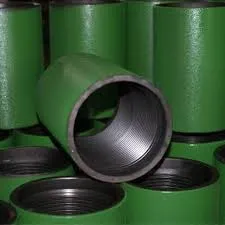- Afrikaans
- Albanian
- Amharic
- Arabic
- Armenian
- Azerbaijani
- Basque
- Belarusian
- Bengali
- Bosnian
- Bulgarian
- Catalan
- Cebuano
- Corsican
- Croatian
- Czech
- Danish
- Dutch
- English
- Esperanto
- Estonian
- Finnish
- French
- Frisian
- Galician
- Georgian
- German
- Greek
- Gujarati
- Haitian Creole
- hausa
- hawaiian
- Hebrew
- Hindi
- Miao
- Hungarian
- Icelandic
- igbo
- Indonesian
- irish
- Italian
- Japanese
- Javanese
- Kannada
- kazakh
- Khmer
- Rwandese
- Korean
- Kurdish
- Kyrgyz
- Lao
- Latin
- Latvian
- Lithuanian
- Luxembourgish
- Macedonian
- Malgashi
- Malay
- Malayalam
- Maltese
- Maori
- Marathi
- Mongolian
- Myanmar
- Nepali
- Norwegian
- Norwegian
- Occitan
- Pashto
- Persian
- Polish
- Portuguese
- Punjabi
- Romanian
- Russian
- Samoan
- Scottish Gaelic
- Serbian
- Sesotho
- Shona
- Sindhi
- Sinhala
- Slovak
- Slovenian
- Somali
- Spanish
- Sundanese
- Swahili
- Swedish
- Tagalog
- Tajik
- Tamil
- Tatar
- Telugu
- Thai
- Turkish
- Turkmen
- Ukrainian
- Urdu
- Uighur
- Uzbek
- Vietnamese
- Welsh
- Bantu
- Yiddish
- Yoruba
- Zulu
Casing Coupling: The Unsung Hero of Well Construction
Casing Coupling: The Unsung Hero of Well Construction
In the world of oil and gas exploration, the term "casing coupling" may not be a household phrase, but it plays a critical role in ensuring the stability and integrity of a well. This humble piece of equipment, essentially a threaded connector, forms the link between individual lengths of casing, the steel pipes that line the borehole.
Casing Coupling: The Essentials
A casing coupling is a cylindrical metal component with an internal thread that mates with the external thread on the end of a casing pipe. This creates a secure and watertight connection, allowing for the extension of the casing string down the wellbore.
The Key Feature: Upset Threads
The most defining characteristic of a casing coupling is its upset threads. This means that the threads on the coupling are slightly thicker and stronger than the threads on the casing pipe. This intentional design feature serves several vital functions:
- Increased strength and durability: The thicker threads offer greater resistance to stress and strain, particularly during the drilling and cementing process.
- Improved sealing: Upset threads provide a tighter fit, minimizing the risk of leaks or fluid seepage between the coupling and casing.
- Enhanced resistance to wear: Upsetting the threads increases their hardness and resilience, extending the lifespan of the coupling.
Caing Coupling
Types of Casing Couplings:
While the concept of upset threads remains constant, casing couplings can be further classified based on their size, material, and specific application. Common types include:
- Regular couplings: Used for standard casing sections.
- Heavy-duty couplings: Designed for high-pressure and high-temperature applications.
- Specialty couplings: Tailored for specific needs, such as casing with non-standard diameters or for specific well conditions.
Beyond the Coupling: The Importance of a Tight Connection
The reliability of a casing string hinges on the integrity of each individual coupling. A loose or damaged coupling can lead to:
- Fluid leaks: Compromising the well's ability to contain production fluids.
- Casing collapse: Weakening the structural integrity of the well, potentially leading to catastrophic failure.
- Environmental contamination: Allowing the escape of harmful substances into the surrounding environment.
Conclusion
Although often unseen, the casing coupling plays a vital role in well construction and production. Its robust design, particularly the upset threads, ensures a secure and dependable connection, contributing significantly to the overall safety, efficiency, and longevity of the well.
-
Tubing Pup Joints: Essential Components for Oil and Gas OperationsNewsJul.10,2025
-
Pup Joints: Essential Components for Reliable Drilling OperationsNewsJul.10,2025
-
Pipe Couplings: Connecting Your World EfficientlyNewsJul.10,2025
-
Mastering Oilfield Operations with Quality Tubing and CasingNewsJul.10,2025
-
High-Quality Casing Couplings for Every NeedNewsJul.10,2025
-
Boost Your Drilling Efficiency with Premium Crossover Tools & Seating NipplesNewsJul.10,2025








